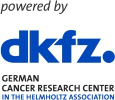Description
Pancreatic ductal adenocarcinoma (PDAC) remains a leading cause of cancer-related mortality, underscoring the urgent need for novel effective therapeutic strategies. Although direct interference with mutant RAS signaling, the omnipresent oncogenic driver in PDAC, is currently revolutionizing targeted cancer therapy, resistance to RAS inhibitors emerges rapidly necessitating rational combination approaches. Furthermore, with a growing array of RAS inhibitor classes entering clinical development, predictive biomarkers to guide individualized treatment selection remain largely undefined.
To address this, we have established a continuously expanding biobank of to date >100 primary patient-derived organoid (PDO) cultures from both pretreated and treatment-naïve PDAC tumors. More than 40% of these models are viable after freeze–thaw cycles and amenable to comprehensive molecular and pharmacologic interrogation. Leveraging this resource, we are systematically assessing the differential efficacy of mutant-specific and mutant-agnostic RASon and RASoff inhibitors, alongside MEK/ERK inhibitors, all in combination with SHP2 blockade - a central node in resistance development in response to MAPK pathway interference.
Pharmacologic screening via high-throughput viability assays is accompanied by microscopy and molecular analyses focusing on RTK-RAS-MAPK signaling dynamics. Transcriptomic and genomic profiling (RNASeq, WES) of treatment-naïve and resistant organoids - matched to their parental tumor tissue - elucidate mechanisms underlying intrinsic and acquired resistance and allow exploration of correlations with therapy response. To validate in vitro findings, representative sensitive and resistant PDOs are orthotopically xeno-transplanted into immunocompromised mice for randomized treatment trials with RAS±SHP2 inhibitors. In vivo tumor dynamics are monitored via MRI, followed by histological and molecular assessment post-treatment.
This integrative platform aims to identify predictive genetic and transcriptomic biomarker signatures for response to RAS+SHP2 and MEK/ERK+SHP2 combination therapies in PDAC, with the ultimate goal of informing rational design of future clinical trials and guiding personalized therapy approaches.
| Preferred type of presentation |
|---|

